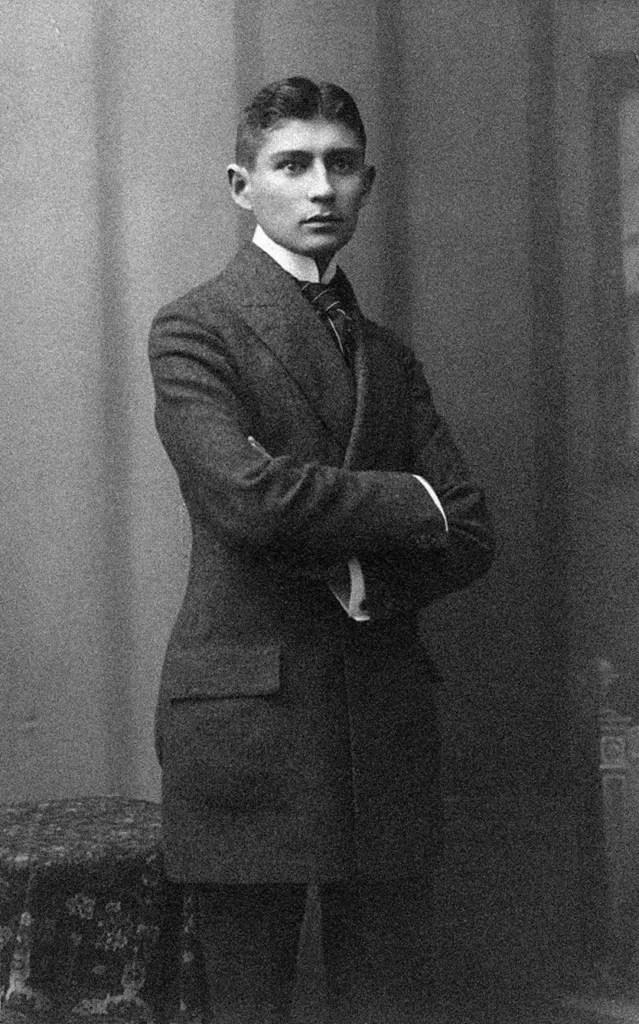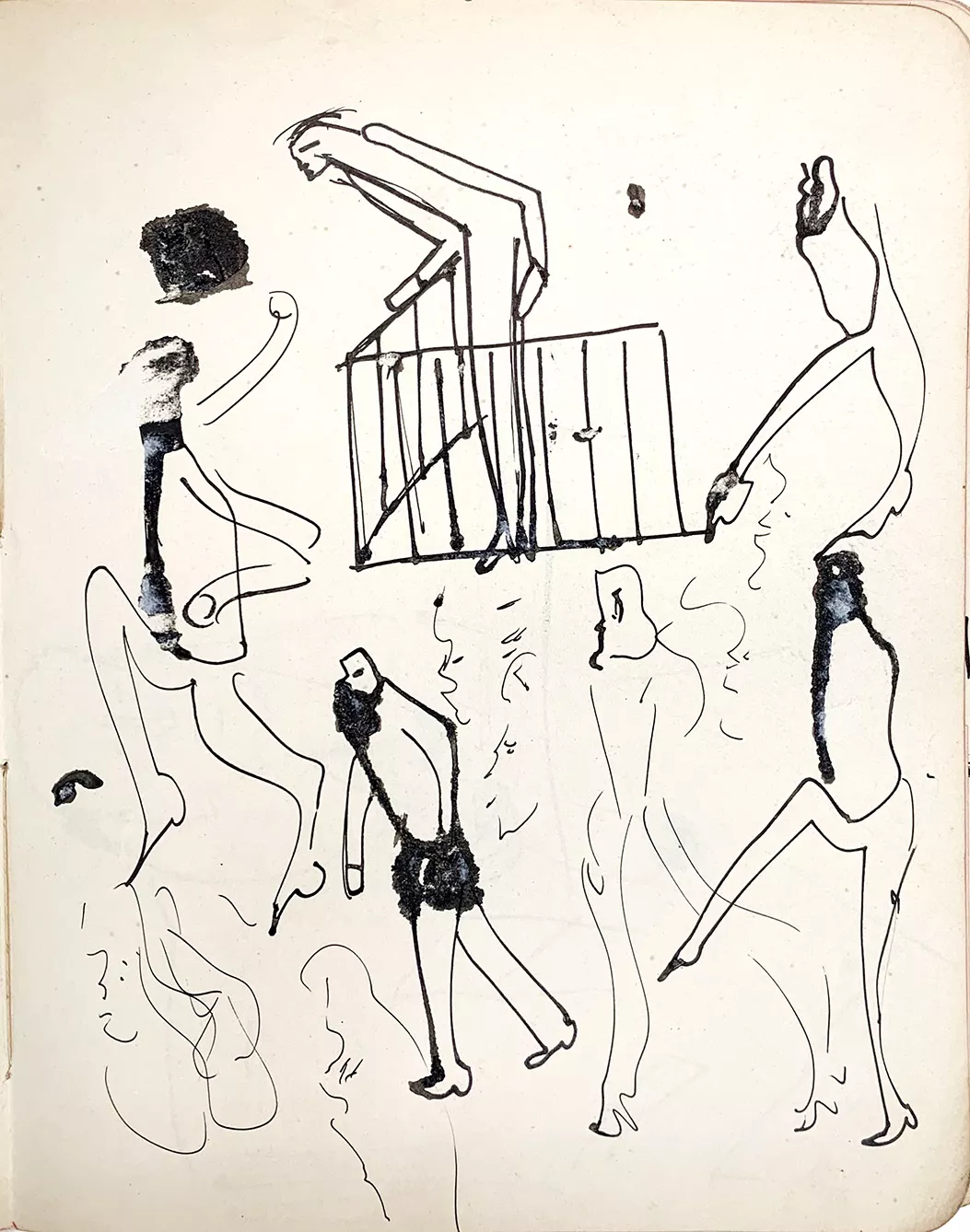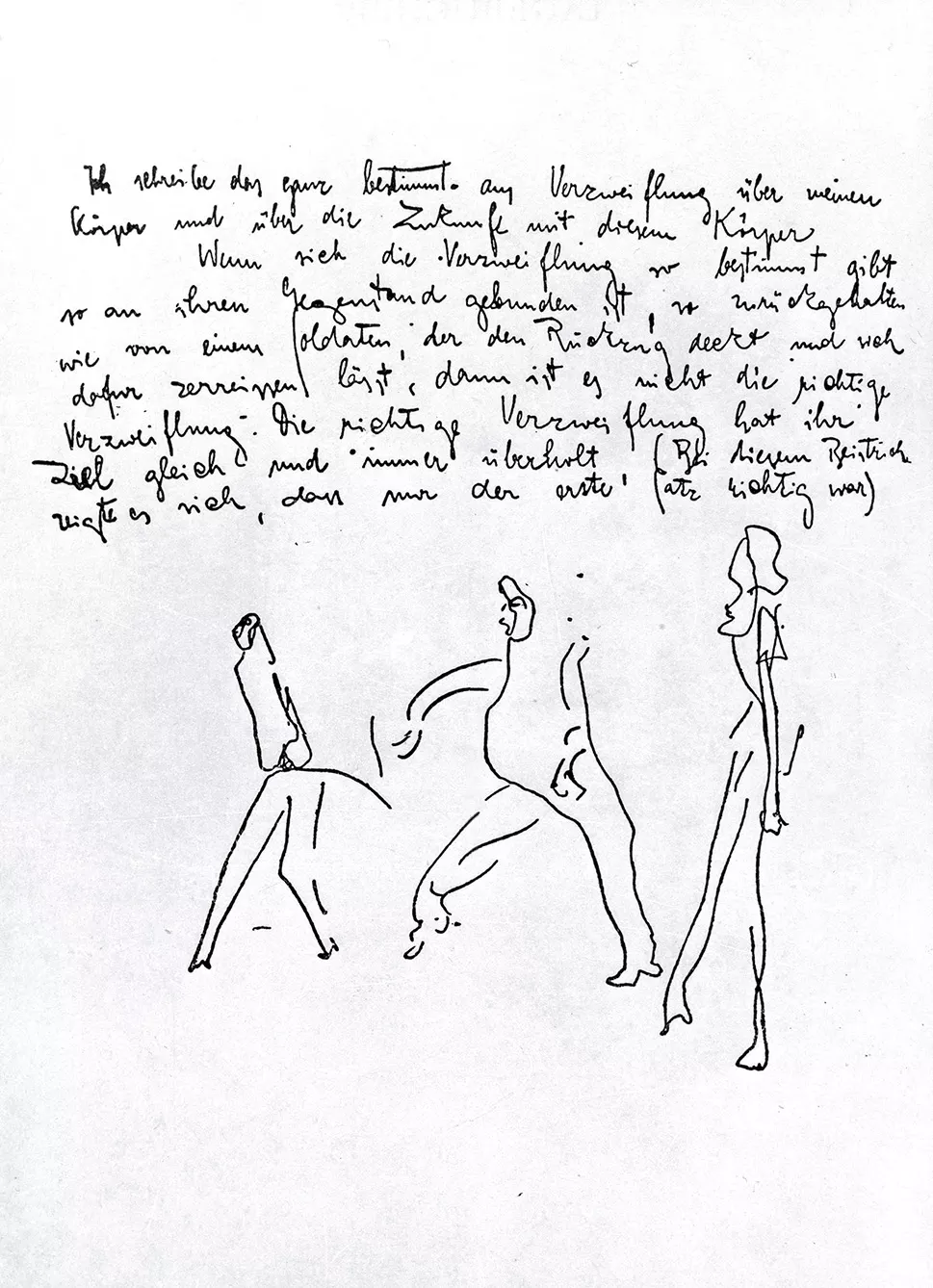Born in 1883 in Prague, Franz Kafka was a son of middle-class Jewish parents. The tragedies in Kafka’s life started very early on, with both of his brothers passing away very young. Family tragedy was a recurring theme in his life, with both of his sisters dying tragically in concentration camps during the second world war.
The kafkesque life of Franz Kafka

After earning his Ph.D. in Law, Kafka started working as an insurance company lawyer in Prague. Despite being very successful at his job, Kafka despised the profession and his colleagues. In a letter to his friend, Kafka wrote: “my occupation is intolerable to me because it contradicts … my only occupation, which is literature.” While working for the insurance companies, Kafka published his first texts in German newspapers and journals. Despite being Czech and born in Prague, Kafka wrote and published all his texts in German.
As fate wanted it, Kafka would be shaken by personal tragedy once more. It all started with him coughing blood and ended with a tuberculosis diagnosis.
Despite being very unfortunate, this event brought happiness to Kafka. He could finally leave the job he didn’t like and focus solely on writing, which was his true love.
Kafka used the art of absurdity, alienation, and anxiety in his works. He became a master of working with these feelings and situations, mainly because he lived through most of them.
The life of alienation
The most outstanding example is his story “The Metamorphosis,” in which the main character of Gregor Samsa transforms into a giant bug. Another great example is the story “The Trial,” in which we found the main character charged, tried, and executed for a crime unknown to him and never mentioned during the book. Both stories bring a tremendous amount of anxiety to the reader, with protagonists that are alienated from reality.
When Franz Kafka succumbed to tuberculosis, only a narrow circle of literature enthusiasts knew his works. Thanks to his friend, who did not follow Kafka’s last wish to destroy all of his manuscripts, he became known to the world. The rediscovery of Kafka’s stories and novels took place in the 1960s in Germany and Austria. He greatly influenced literature in those countries at that time.
Slowly but steadily, this influence became global. The rediscovery of Kafka did not only influence literature but extended its reach to philosophy and politics. And it was in the late 1960s when this influence reached Kafka’s place of birth, communist Czechoslovakia.


Kafka’s stories were so influential that some elements spilled over into sociology and philosophy. The absurdity of his novels inspired intellectuals to come up with a new term: Kafkaesque. What does it mean? It describes unnecessarily complicated and frustrating experiences, usually ineffective and useless. So, next time you are waiting in line in a government building filling out mountains of paperwork, remember Kafka.
If you want to see Kafka yourself, visit Prague. There is a huge statue of Franz Kafka’s head opposite Prague City Hall to warn all who are entering the Kafkaesque experience they will have. And the statue? Believe us; it’s as absurd as his works.







